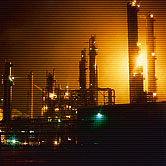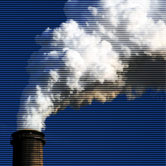Portfolio View – What We’re Thinking
As further news of the economy fails to elevate investor sentiment, June’s poor equity performance seemed understandable, however unpleasant. Above the undercurrent of the housing depression and financial market dysfunction, the cost of oil and gas – sounding now like a broken record – has stoked inflation and global slowdown fears and anxieties across the globe. We knew the upturn in March was too good to be true, and have waited for an additional shoe to fall, which seems to be happening.
As clients are likely aware from our prior communications and headlines, we continue to see ongoing weakness and volatility through the summer, until such time as the oil and other commodity bubbles appear to lose some air at the very least, and until some bottom seems to be approaching to the housing and financial industry woes. It may not be far away. Fear is a key driver right now, as it is clear that the market is oversold.
 Let’s talk about oil. While it remains remarkably unclear what is driving this extraordinary price of oil, which has doubled from $70 to $140 in less than a year, what is clear is that the pure fundamentals alone are not the cause. What we mean by this is that while global demand for oil, particularly in China, India and the developing nations, has been increasing, the demand has not been doubling as the price of oil has in the US. And while the US dollar’s weakness has caused us to spend more for oil than our European counterparts given the Euro’s strength versus our dollar’s weakness, we’d like to point out that Europe has seen over a 90% increase in oil prices as well. In other words, we do not see current prices justified strictly by the fundamentals and currency, but rather by fear (geopolitical) and fear-and-greed driven speculation. If this is a bubble, we expect oil to come tumbling down; we just don’t know when, or by how much. The recent drop in metals and other commodity prices may suggest that this bubble is actually starting to lose air.
Let’s talk about oil. While it remains remarkably unclear what is driving this extraordinary price of oil, which has doubled from $70 to $140 in less than a year, what is clear is that the pure fundamentals alone are not the cause. What we mean by this is that while global demand for oil, particularly in China, India and the developing nations, has been increasing, the demand has not been doubling as the price of oil has in the US. And while the US dollar’s weakness has caused us to spend more for oil than our European counterparts given the Euro’s strength versus our dollar’s weakness, we’d like to point out that Europe has seen over a 90% increase in oil prices as well. In other words, we do not see current prices justified strictly by the fundamentals and currency, but rather by fear (geopolitical) and fear-and-greed driven speculation. If this is a bubble, we expect oil to come tumbling down; we just don’t know when, or by how much. The recent drop in metals and other commodity prices may suggest that this bubble is actually starting to lose air.
Regarding natural gas….We will talk further about natural gas in a forthcoming paper, but here’s our quick view on the topic. Oil is clearly in bubble territory. It has been, however, almost a perfect inverse to the equity markets – as oil has gone up in price, the markets have gone down, and vice versa. While natural gas has jumped up dramatically as well it has begun to exhibit a similar inverse relationship to the equity markets, making it a potentially good hedge against the equity market volatility. It is also much less expensive per output of energy than oil. For the long-term, however, it is clear that natural gas will be the interim fuel of choice given its much lower greenhouse gas (GHG) emissions than oil and coal, is cleaner to drill, and there is considerable domestic supply. For this reason, even despite its recent price run-up, the long term trend is very supportive of natural gas, which makes it appropriate for portfolios.
Portfolio Actions.
Portfolio-wise, we have taken an increasingly cautious position since earlier in the year, using various hedges and lightening up on equity positions. We did not believe the market rebound in March was for real, nor have we been impressed by Tuesday’s bump. We have taken positions in natural gas, both as a hedge against the weakness of the dollar and as a long-term position, although we do anticipate volatility here. (These natural gas positions may be moved in and out of based on market volatility). We are also beginning to tip-toe into other long term opportunities. There are many opportunities coming into focus, but the timing must be done carefully, despite numerous pundits who feel that market bottom has been reached. For those portfolios that are income-oriented, holding tight to high quality, income-yielding investments through this downturn is likely the best approach, and the one we’re taking. For growth-oriented positions, we remain partially invested in equities, but we’ve reduced exposure to keep risk below that of the regular market.
We began to see last week the possible beginning of an unwinding of the commodity bubble, beginning with a drop in metals and agricultural prices, and then oil and natural gas. We wouldn’t be surprised to see commodity (including oil) prices move down quickly from here. It’s much too soon, however, to see this as a trend. If it is, it could help remove a key component to the inflation cloud, but it would still leave us staring starkly at the continuing challenges of the housing and financial markets, which are now begging for strong government and private intervention.
Whether we are in a “bear market,” “correction,” or “recession,” the market turnarounds historically are rapid, as investors even in March observed. For that reason, we remain diversified and partially invested in equities and ask our investors to remain patient and consider the longer term time frame. Should we see economic fundamentals or market psychology taking a strong turn for the worse, we will become increasingly defensive.
For the best investors, the darkest times have presented the brightest opportunities. At the moment, market psychology – currently fear and speculation – is moving the market more than anything else. Remaining defensive, but not running for the hills we see is the best approach.
 Climate Change news…
Climate Change news…
In separate news, this past week, the G-8 gathering of the some of the world’s major nations meeting in Japan announced a commitment to reducing greenhouse gas emissions 50% by the year 2050. While this seems like an important announcement, details were remarkably skimpy, and the starting point was also conspicuously absent. Are we talking about reductions from current levels or 1990 levels (which are more stringent and generally used as the benchmark)? What are the benchmarks and timetables? Justifiably, many organizations were unimpressed. "At this rate, by 2050 the world will be cooked and the G- 8 leaders will be long forgotten," Oxfam policy adviser Antonio Hill said in a statement.
The bright side is that finally George W. Bush and the United States is taking a more proactive stance in the discussion. Given the reticence of developing nations to respond favorably to the announcement, however, it is clear that the US will need to look to a new administration that can bring credibility and gravitas in order to lend global leadership to this important issue.
Please feel free to call with any questions or thoughts.
Peace,
Ron SteinGood Harvest Financial Group
631.423.6501